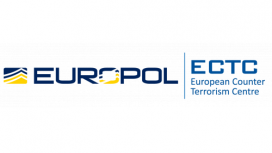International Law In Action: Investigating and Prosecuting International Crimes
‘Investigating and Prosecuting International Crimes’ is the second course in Leiden University’s new series on International Law in Action. The first course covered international courts and tribunals in The Hague in general. This second course provides an insider perspective into the work of international criminal courts and tribunals. You will learn about the investigation and prosecution of international crimes in The Hague.
Atrocities produce unspeakable forms of violence. We will explore whether and how international criminal justice contribute to what UN Secretary-General Ban Ki Moon called the ‘age of accountability’. The theory is, those who commit the worst of human crimes, are held accountable, whether they are rank-and-file foot soldiers or military commanders, whether they are lowly civil servants following orders or top political leaders. We will test how this can be done and if this is realistic.
During this course, you will be offered a look into the ‘kitchen’ of the Hague international criminal courts and tribunals. You will learn how international criminal justice functions, who the actors are, what outcomes it produces, and how it can be improved.
If you want to gain a better understanding of international criminal cases, like the Lubanga case, the ICC’s first ever trial, and the legal legacy of UN international criminal tribunals, then this course is definitely for you!
This course is free to join and to participate in. There is the possibility to get a verified certificate for the course, which is a paid option. If you want a certificate, but are unable to pay for it, you can request financial aid via Coursera.
After taking this course you will be able to:
• Identify different types of actors involved in cyber threats (individuals, organizations & nation-states)
• Distinguish between different types of threats and issues in cyber security including, data theft, political espionage, critical infrastructure protection, and propaganda
• Detail the basic characteristics of the Internet infrastructure and international efforts to address Internet governance
• List several international efforts to address cyber crime and espionage
• Evaluate how principals that govern international conflicts might be applied in context of cyber security
• Apply different psychological theories of human motivation and cooperation and communication and political theories in analysis of different international issues related to cyber security including censorship, media operations and role of social technologies.
No background knowledge or skills are necessary, but an understanding and familiarity of cyber security, Internet infrastructure and international law would be advantageous for anyone who participates in the course.
Ubicación
Para apuntarse al curso, por favor, haga clic en el botón. Apuntarse ahora.
| Temas | |
| Idiomas | English |
| Evaluación | Exam |
| Público objetivo | |
| Métodos | |
| Número de participantes | 30 |
| Acreditación | |
| Certificado |
Si tiene alguna pregunta acerca de este curso, por favor, póngase en contacto con nosotros.
Para enviar un mensaje, por favor, haga clic en este botón. Póngase en contacto con nosotros

